 Petzlover
Petzlover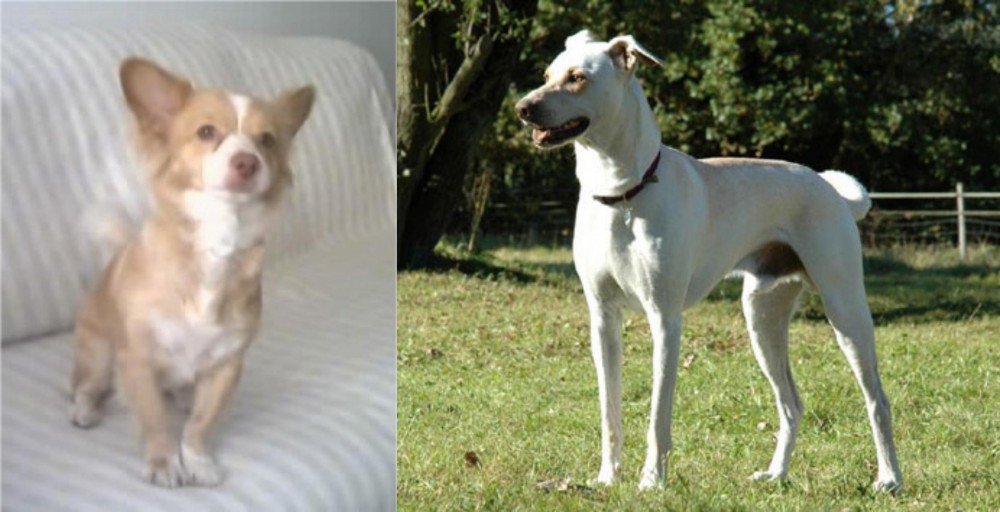 Both Alopekis and Cretan Hound are originated from Greece. Alopekis may grow 36 cm / 14 inches shorter than Cretan Hound. Both Alopekis and Cretan Hound are of same weight. Both Alopekis and Cretan Hound has almost same life span. Both Alopekis and Cretan Hound has almost same litter size. Both Alopekis and Cretan Hound requires Moderate Maintenance.
Both Alopekis and Cretan Hound are originated from Greece. Alopekis may grow 36 cm / 14 inches shorter than Cretan Hound. Both Alopekis and Cretan Hound are of same weight. Both Alopekis and Cretan Hound has almost same life span. Both Alopekis and Cretan Hound has almost same litter size. Both Alopekis and Cretan Hound requires Moderate Maintenance.
 The courageous Alopekis is said to have run with and fought with bulls. To this day they escort bulls in Greece. They were used by the Greeks to contain the vermin populations, guard the chickens and ducks, and assist larger dogs in working with sheep. At one time it was thought that they originated from breeding of dogs and foxes, but this proved not to be true. It was also once considered to be the same breed as the Small Greek Domestic Dog, but it has since been declared its own breed.
The courageous Alopekis is said to have run with and fought with bulls. To this day they escort bulls in Greece. They were used by the Greeks to contain the vermin populations, guard the chickens and ducks, and assist larger dogs in working with sheep. At one time it was thought that they originated from breeding of dogs and foxes, but this proved not to be true. It was also once considered to be the same breed as the Small Greek Domestic Dog, but it has since been declared its own breed.
The Alopekis is not a recognized breed with any of the current national or international dog organizations. The Kennel Club of Greece will recognize them once their population is large enough. They cannot be recognized by the AKC, IKC, or International groups until they are a much larger group.
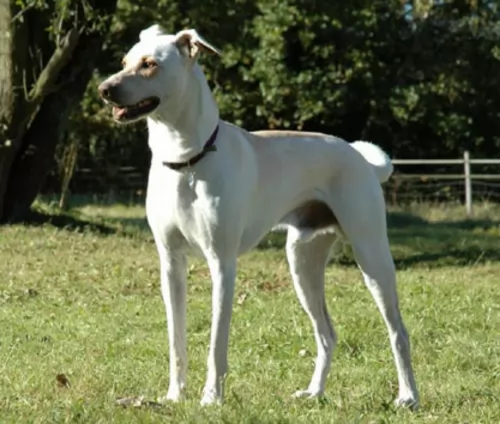 Although the Cretan Hound or the Kritikos Lagonikos is recognized in both Greece and Germany, the hunting dog breed is from the island of Crete, Greece. The dog’s history goes back thousands of years. It is an ancient breed and some believe it is one of the oldest hunting breeds in Europe.
Although the Cretan Hound or the Kritikos Lagonikos is recognized in both Greece and Germany, the hunting dog breed is from the island of Crete, Greece. The dog’s history goes back thousands of years. It is an ancient breed and some believe it is one of the oldest hunting breeds in Europe.
The Cretan Hound has been bred as a working dog, combining sight and scent to track down their prey. Today it is still a rare dog breed that you won’t easily find outside of Crete.
Greece kennels recognize this dog as well as some European kennels, but it isn’t recognized by the American Kennel Club.
 The Alopekis is a small, fox-like dog with pricked ears on a head that is wedge shaped. They have large eyes, a deep and tapered muzzle with a broad nose. They are short but have long backs and a deep, wide chest with strong legs and feet. They have a beautiful tail that cures upward and a double coat.
The Alopekis is a small, fox-like dog with pricked ears on a head that is wedge shaped. They have large eyes, a deep and tapered muzzle with a broad nose. They are short but have long backs and a deep, wide chest with strong legs and feet. They have a beautiful tail that cures upward and a double coat.
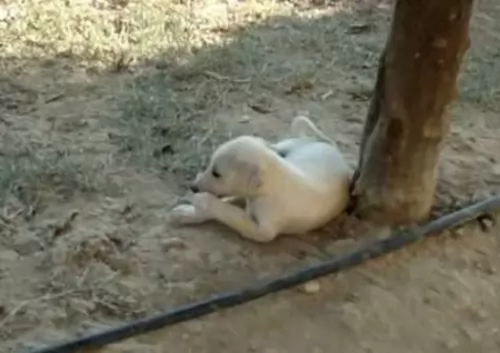 Known for its extraordinary scent abilities as well as its speed, this dog has always been used as a hare hunter because of these skills.
Known for its extraordinary scent abilities as well as its speed, this dog has always been used as a hare hunter because of these skills.
It’s a slender dog of medium to large size and stands at about 60-68cm in height and weighs between 20 – 30kg. It is lean, strong, muscular and swift with a body that is inclined to be longer than tall.
He is slightly heavier than other scenthounds and his ribs aren’t seen. The head is wedge-shaped and the ears drop down, are folded back or can be semi-erect. The eyes are dark and the tail is long and curves upwards with longer hair being found on the tail.
The coat is short and smooth, and coat colors of the dog are varied and can be fawn, sandy, grey, white, black or brindle, and it can be tri-colored too.
The Cretan Hound is alert to sight, sound and scent and when it senses prey, the tail moves in a circular way and the dog becomes rigid for a while before he is off on the hunt.
He is a gentle, intelligent dog, reserved around strangers but making an excellent family pet as he gets on well with all his human family members as well as pets in the house. With good training and socialization, the dog becomes more relaxed around strangers.
He isn’t an aggressive dog, and while he is alert to sounds and smells, he doesn’t make a particularly good watchdog.
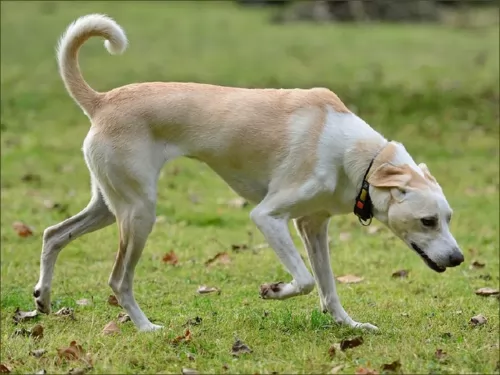 The Cretan Hound is an energetic, curious dog, but when it comes to being a family pet, he is affectionate and gentle.
The Cretan Hound is an energetic, curious dog, but when it comes to being a family pet, he is affectionate and gentle.
He is a reserved dog around strangers. He likes to be busy and will love his walks and games with his human family members. He is smart so is readily trained and he likes to be obedient and to please.
The Cretan Hound will live in harmony with other dogs in the home and they’re also patient and good around disciplined children who have learned to respect animals.
Provide your Cretan Hound with his fair share of love and attention and he will go out of his way to be a loyal and loving family friend.
 The Alopekis is an endangered species of canine due to a variety of factors. Traditionally this has been a healthy gene pool and the breed has been an example of the evolution of small canines. Factors such as farm pesticides, urbanization and cross breeding have affected the breed’s future.
The Alopekis is an endangered species of canine due to a variety of factors. Traditionally this has been a healthy gene pool and the breed has been an example of the evolution of small canines. Factors such as farm pesticides, urbanization and cross breeding have affected the breed’s future.
This is made worse by the fact that the female Alopekis only breeds once a year, the litters are small, and the puppy mortality is high. In addition, the dogs are regularly neutered as part of a program to control strays, despite their status as an endangered species.
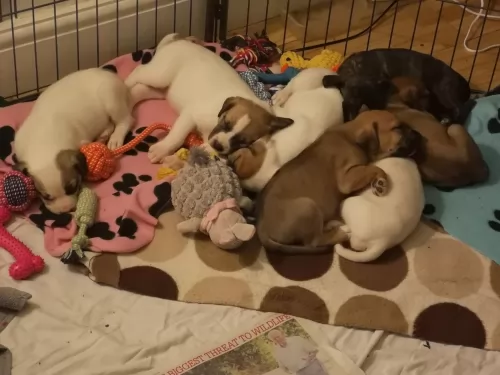 The Cretan Hound is a healthy, robust dog breed, but even so, he can suffer from some common health problems that other dogs are also susceptible to. Some of these are hip dysplasia , cancer, ear infections, bloat and cherry eye.
The Cretan Hound is a healthy, robust dog breed, but even so, he can suffer from some common health problems that other dogs are also susceptible to. Some of these are hip dysplasia , cancer, ear infections, bloat and cherry eye.
Remember that if you don’t want your dog to have puppies, they can actually benefit health-wise from being spayed or neutered. Doing this for your pet can prevent a number of health issues later on down the line.
Make sure too, that your puppy receives his vaccinations in a timely fashion so as to avoid terrible, life threatening illnesses such as parvo and rabies.
 This is a high energy dog and the puppies need to be fed a high-quality puppy food. Feed about 1/3 of a cup twice a day.
This is a high energy dog and the puppies need to be fed a high-quality puppy food. Feed about 1/3 of a cup twice a day.
Feed high- quality dry dog food and dog treats to this active dog. Feed about ¼ of a cup twice a day – more if below average weight and less if overweight.
Keep them active and away from pesticides if possible.
This is a very active dog that needs a lot of exercise, games and if possible – a job.
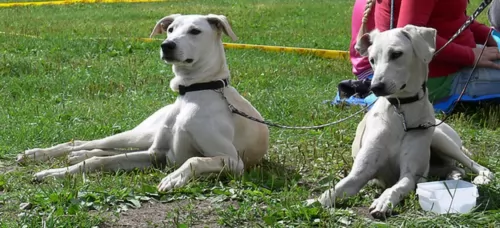 You’re certainly not going to have to do too much grooming with the Cretan Hound as he is a low maintenance breed.
You’re certainly not going to have to do too much grooming with the Cretan Hound as he is a low maintenance breed.
The dog is a short haired breed and an average shedder, so a good brush twice a week will keep the coat free of loose hairs and maintain the condition of the hair.
As with all dogs, the nails as well as the ears must be checked and attended to. The veterinarian can advise you on how to keep his ears clean and free of infection, as prodding around without knowing can damage his ears.
This Cretan Hound has high activity needs. He is energetic and also hard-working, and you’ll need to be taking him on long walks and providing him with some highly energetic playing sessions. Throw ball for him and take him with you when you go jogging or cycling.